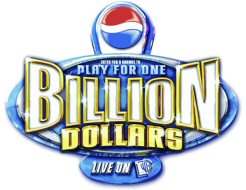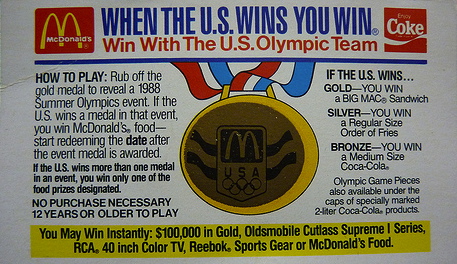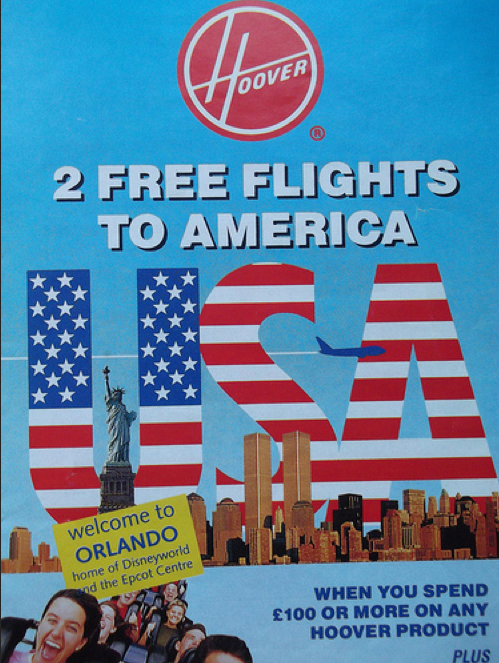Is it possible to be too generous? If you’re a business looking to launch a clever marketing campaign, the answer is yes. Although contests and sweepstakes are popular marketing tactics for businesses, they don’t always pay off.
We at Fueled love to be generous, but some companies give away too much in an effort to increase brand awareness and gain new customers. The results can be costly lessons in the value and risk of generosity.
Pepsi’s Billion-Dollar Giveaway
As a way of promoting its brand in 2003, Pepsi engineered a sweepstakes whose billion dollar reward remains the largest cash prize ever offered to this day. It was hyped all summer long, leading to a television special in the fall.
The fact that a chimpanzee would choose the winning numbers only added to the spectacle. Unable to actually pay out a billion prize in the case that someone actually won, chances of winning were estimated at 0.1%, Pepsi acquired insurance from Berkshire Hathaway at a cost of $10 million.
Ultimately, nobody won the $1 billion and the show was a total flop. Although Pepsi had planned to make it an annual event, the idea was thrown out. The prize was generous, but designing a contest with a low probability of anyone winning was a mistake.
McDonald’s Olympic Giveaway
During the 1984 Olympics, McDonald’s launched their “When the U.S. Wins, You Win” campaign. It was a promotional stunt that capitalized on the enthusiastic support for the U.S. Olympic teams.
The campaign provided scratch off tickets to customers and each ticket corresponded with a particular Olympic event. If the U.S. won the event, the customer received a free menu item according to the medals won. Since the tickets listed every Olympic game that happening, the campaign may have boosted not only its own brand but lesser watched sports as well.
Because Russia boycotted the Olympics that year, the U.S won more medals than it had in its previous Olympics. American athletes won 83 gold medals, with 174 medals won in all. For McDonald’s, this was a financial disaster. Nobody had calculated an estimate beforehand, but if they had the actual amount of food given away would’ve far surpassed that.
Many reported that the company couldn’t fulfill orders at many locations. In the meantime, customers still didn’t have to pay a thing.
Fly for Free With Hoover Vacuums
One of the most ill-conceived giveaways was dreamt up by the Hoover Vacuum Company in 1992. They ran a campaign that gave away two round-trip plane tickets to the U.S. or Europe with every vacuum purchased. Although the company hoped that customers would be more inclined to purchase expensive models, it set its minimum purchase to receive that tickets at £100, or roughly $166 today.
This resulted in people buying cheap vacuum models just to get airline tickets. Some even bought more than one vacuum but many of these people never received the tickets that were promised. They started taking Hoover to court in the US and UK; the impending legal battles for Hoover did not end for another six years. In the end, Hoover lost approximately £50 million, or roughly $83 million today.
Brian Webb, vice president of marketing at the time, and William Foust, head of Hoover UK and European president, were promptly fired. This didn’t stop the European portion of the brand from being bought out by Candy, a washing machine maker in the UK.
What Other Companies Can Learn
Sweepstakes and giveaways are effective promotional strategies, and many companies have used them to promote their brands successfully. But sometimes companies offer more than they can handle. They overestimate or underestimate their audience’s interest, make unrealistic offers, or just fall victim to bad timing. In any case, companies should learn that when it comes to marketing, it’s possible to be too generous in their greedy rampage to attract customers.
Transparency and honesty were seriously lacking in the campaigns listed above. These companies thought they could swindle their way into more publicity but ended up losing money for not paying attention to the details. Other companies should always remember their own limitations and that potential customers are not as unobservant as they’d like them to be.
By Ilan Nass. Fueled is New York’s leading mobile app development.
Image Credits: scapromotions.com, mcgarnagle.files.wordpress.com, truthaholics.wordpress.com







